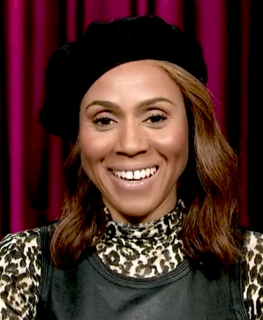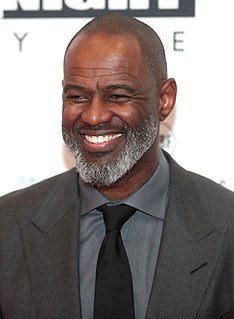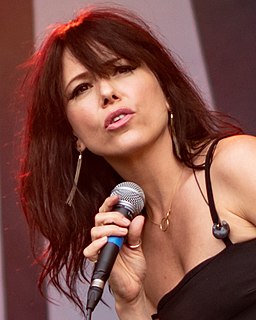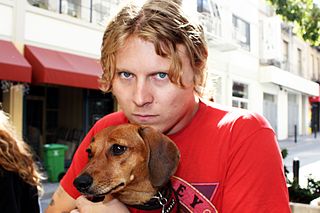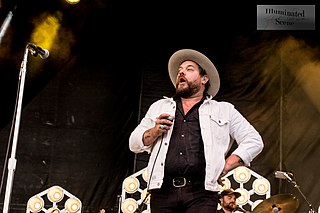A Quote by Ryan Adams
I got on the phone with the president of my label and I said, "Obviously, I write songs in a lot of styles and play a lot of different kinds of music. We're getting toward the end of our business collaboration. If you could envision a record that you wanted to hear from me, what kind of record would it be?" It wasn't like asking him to fill an order, it was really just a conversation. For all the things I'd ever asked him, this was one thing I'd never asked, and I don't know why. So I was curious. And the thing that he was most interested in hearing was a solo record.
Quote Topics
Asked
Asking
Business
Collaboration
Conversation
Could
Curious
Different
Different Kind
Different Kinds
Different Kinds Of Music
End
Envision
Ever
Fill
Getting
Got
Hear
Hearing
Him
Interested
Just
Kind
Kinds
Know
Label
Like
Lot
Me
Most
Music
Never
Obviously
One Thing
Order
Our
Phone
Play
President
Really
Record
Said
Solo
Songs
Styles
Thing
Things
Toward
Wanted
Why
Would
Write
Related Quotes
When I first came to New York I was a dancer, and a French record label offered me a recording contract and I had to go to Paris to do it. So I went there and that's how I really got into the music business. But I didn't like what I was doing when I got there, so I left, and I never did a record there.
We drank quite a lot and Tony Harrington said, "We're thinking of starting a record label at The Wire; how about you do a solo record?" I said, "Well, how am I going to do that?" I thought about it, and I'd been working on a lot of music in the years before, and I was working as a journalist, full time, really, up until that point; in whatever little spare time I had, I was working on music. So I said yes.
My record label, which is a huge record label who represents massive, massive stars - they've never done anything like this before, and they were so excited about this idea of an animated character which is singing legitimate music. It's not a comedy record, it's a legitimate record. And they really jumped on board. So, we've got our Facebook page up, we'll be jumping on Twitter very soon, and sort of be creating Haley outside of American Dad.
One thing that did get me into a lot of different types of music was when I was very young, the local record store went out of business and they were selling off all the vinyl. I remember going in - I was probably 16 or 17 and I'd just gotten a record player as a present. It was like hitting the jackpot: all these records for $3 apiece.
I really like to think of each record as its own thing. So, for sure, but I hate the idea of being stuck in anything. Like I want to do a Hawkwind-style record too, or a noise rock record or a hardcore record. Why not, you know? I would just not want to keep heading too far in one direction, without pulling off and going the other way. That is what is fun for me.
Early on, before rock 'n' roll, I listened to big band music - anything that came over the radio - and music played by bands in hotels that our parents could dance to. We had a big radio that looked like a jukebox, with a record player on the top. The radio/record player played 78rpm records. When we moved to that house, there was a record on there, with a red label. It was Bill Monroe, or maybe it was the Stanley Brothers. I'd never heard anything like that before. Ever. And it moved me away from all the conventional music that I was hearing.
I really like to think of each record as its own thing. So, for sure, but I hate the idea of being stuck in anything. Like I want to do a Hawkwind-style record too, or a noise rock record or a hardcore record. Why not, you know? I would just not want to keep heading too far in one direction, without pulling off and going the other way.
One thing I learned about Gordon Brown is you've got to have the strength to just get in there and take him on. When you first hear him spouting his statistics and boasting about his record, it can be quite intimidating. But over time, shadowing him, I just realised that a lot of it was rubbish; a lot of it was baloney.
I do not want and will not take a royalty on any record I record. I think paying a royalty to a producer or engineer is ethically indefensible. The band write the songs. The band play the music. It's the band's fans who buy the records. The band is responsible for whether it's a great record or a horrible record. Royalties belong to the band. I would like to be paid like a plumber. I do the job and you pay me what it's worth.
[Jack Johnson] became a superstar and started his own record label, and then he made and produced my first record, he co-wrote the songs on there, and then he let me open up for him for two years all around the world. And that was like the best start I could've had, the best way I could've started in the music scene.

